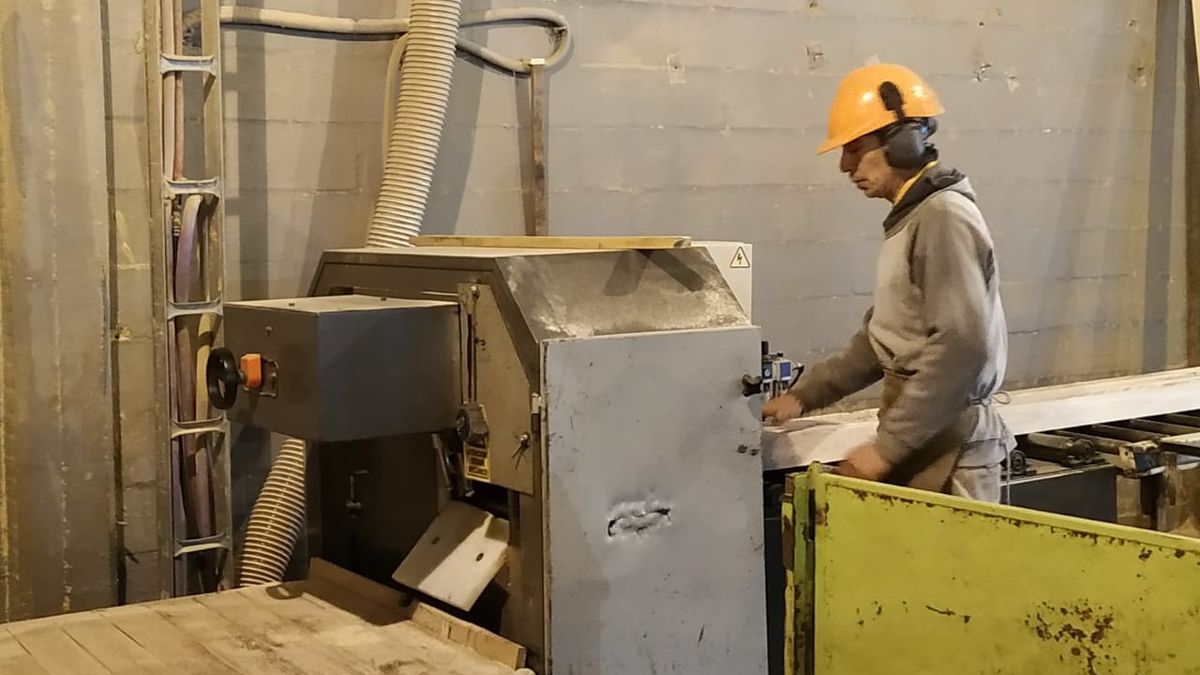New documentary series “HerbStresidenz”
André Dietz about the challenging shooting time
Copy the current link
Add to the memorial list
André Dietz tells in the interview, which particularly moved him in the new documentary series “Herbstresidenz”.
In the VOX documentary series “Zum Black Forest Hirsch”, actors André Dietz (49) and professional chef Tim Mälzer (54) sat down to ensure that people with Down syndrome were able to work in a restaurant as independently in the areas of service and kitchen for a month. Now the next project follows: In the documentary series “HerbStresidenz with Tim Mälzer and André Dietz” (from March 5, 8:15 p.m. at VOX, also) seniors are maintained in a Caritas nursing home by people with disabilities. In this context, the young careers can qualify for everyday helpers and thus find employment in the first labor market.
In an interview with the news agency Spot on News, “AWZ” actor André Dietz tells what touching moments he experienced in the nursing home, why the shooting time for his family became a challenge for his daughter with the Angelman syndrome and how he imagines his own life in old age.
After “Black Forest Hirsch” you have now implemented the “Herbstresidz” project. How did the two projects differ in the approach?
André Dietz: In my view, there was no difference. For me, both projects meant a jump into the cold water. Simply make without knowing exactly what awaits me. I had to prepare for a group of people, lead them and let them guide me at the same time.
What are the forms of impairment the care apprentices and how were they selected for the program?
Dietz: We received thousands of applications. The type or expression of the disability was neither an exclusion nor an attitude criterion. Man and his character was crucial – exactly as it should be in an inclusive society.
What advantages and disadvantages have emerged in the project in the integration of people with disabilities in the project?
Dietz: We have often been mirrored that the disability makes no difference to the other beginners in the nursing profession. Overall, they were rather more motivated and gave the people on site extremely quickly and affection where others might have had inhibitions.
In a section of the program you can see how the newcomers have problems with the penalty of the elderly when washing the elderly. What were other major challenges for both sides?
Dietz: In the beginning, some new careers had difficulty entering the privacy of the elderly – just like me on my first day. I got a crash course in care and should suddenly wash a naked older lady to date. This requires overcoming. But the bigger challenge was with the residents themselves. They often had more fears of contact than our trainees. But after five minutes in the first contact, all the barriers were dismantled.
Which particularly touching moments did you experience during the time?
Dietz: A topic that particularly moved me was dealing with death. One participant came to me completely dissolved after visiting a deceased resident again. It was not just about the woman who had died, but that the flowers were not beautiful enough in her hand. Your solution? She picked fresh flowers from the flower box of a balcony and brought her a more beautiful bouquet – a touching way of coping with grief.
How did you get the shoot and everyday family life, which includes your daughter with the Angelman syndrome and three other children?
Dietz: The shooting time was a big challenge for my family – especially for my wife. My daughter Mari’s sleep worsened again, so that I often drove home for two hours in the evening after the shoot and had to go again in the morning. In addition to Mari, we also have three other children who need their dad. I tried to be at home at least two to three complete days a week.
In the RTL interview, they say about their motivation for the project: “I would like to prepare my daughter with disabilities a future in which all people are the same and above all have the same opportunities.” How do you experience the topic of inclusion with your daughter, where does she work and where not and what do you want for the future?
Dietz: Inclusion works well in our social life – but we are also the mouthpiece for our non -speaking daughter. If someone “looks at us”, we speak to him and each of these conversations is positive. Nevertheless, Mari will probably never be able to work because her mental and physical disability is too pronounced. I campaign for people with disabilities to belong everywhere, of course, because this is a win for everyone – also for my daughter.
To what extent has your view of the nursing profession changed through the experiment?
Dietz: It is an absolute madness, which every individual of the nursing staff I got to know. However, due to the nursing emergency, they often have little time for human closeness. This is not only bad for the residents, but also questions the actual promise of the nursing profession. It scares me that the gap between staff and those in need of care will continue to separate.
Do you think differently about your own later life in old age, what do you want for it?
Dietz: I don’t care where I get old – the main thing is that it is a place that I feel at home where I can participate in life and have people around me that I love.
What has to change so that the experiment in the St. Nicholas Elderly Center in Bernkastel-Kues not only remains a showcase project without imitators?
Dietz: It doesn’t take much to continue our concept – we have proven it. Caritas has already signaled that it wants to take over the model. Perhaps there are more imitators. It’s not difficult, you just have to want it!
To what extent does the “autumn residence” play a role in your life today, do you drive the efforts forward, are you still in contact with those responsible/carers/the trainees?
Dietz: We – the production company Vitamedia and I – still have contact with all participants in the projects and their relatives. We know how they did and how their path continues. Everyone has my number and there is no day when I don’t get at least one message from one of the now 23 extremely cool people. So the projects are sustainable and will remain.
Spotonnews
Source: Stern
I am an author and journalist who has worked in the entertainment industry for over a decade. I currently work as a news editor at a major news website, and my focus is on covering the latest trends in entertainment. I also write occasional pieces for other outlets, and have authored two books about the entertainment industry.




